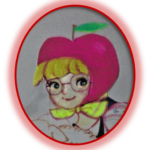*READ MORE から音声も聞けます。
音声はこちらから⇒ Spotify: iPhone: Google Podcast: CastBox:
So now that we’ve come to understand the many meanings of “liberal,” let’s talk about liberal arts. Turning to the Encyclopedia Britannica, we dug up this description:
② Liberal Arts ( Britannica )
Liberal arts, college or university curriculum aimed at imparting general knowledge and developing general intellectual capacities in contrast to a professional, vocational, or technical curriculum. In the medieval European university the seven liberal arts were grammar, rhetoric, and logic (the trivium) and geometry, arithmetic, music, and astronomy (the quadrivium). In modern colleges and universities the liberal arts include the study of literature, languages, philosophy, history, mathematics, and science as the basis of a general, or liberal, education. Sometimes the liberal-arts curriculum is described as comprehending study of three main branches of knowledge: the humanities (literature, language, philosophy, the fine arts, and history) , the physical and biological sciences and mathematics, and the social sciences.
impart (知識などを)授ける、与える medieval 中世の
the seven liberal arts 自由七科 trivium 〈ラテン語〉〔中世の大学の〕三学科◆自由七科のうちで、初歩の3科目を指す。文法(grammar)、修辞学(rhetoric)、論理学(logic)◆【語源】triが「数字の3」、viaが「道路」で「三差路」という意味。
quadrivium 〈ラテン語〉〔中世の大学の〕四学科 ◆自由七科のうちで、三学科の後で教えられる、幾何(geometry)、天文(astronomy)、音楽(music)、算術(arithmetic)の4科目を指す。◆【語源】quadriが「数字の4」、viaが「道路」で「四差路」という意味。
comprehend 分かる、理解する( 理解する過程や努力に重点が置かれ、フォーマルな印象を与える改まった表現)
humanities 人文科学、人文学、文系科目 physical science 物理科学 biological science 生物科学 social sciences社会科学----自然と対比された社会についての科学的な認識活動およびその活動によって生み出された知識の体系
3A) Let’s dig a little deeper. Where does the concept of a liberal arts education come from? リベラルアーツ教育の概念はどこからきているか。
Well, the history of a liberal arts education dates back to classical antiquity(古典古代—–(西洋史)において古代ギリシア・ローマ時代を指す). Stemming from the Latin word ‘liberalis.’ meaning “appropriate for free men,” a liberal arts education was a course of study considered essential for free citizens of Greece and Rome. In the minds of the ancient Greeks and Romans, a liberal arts education was necessary for a human being to be free. On the other hand, vocational or technical studies were often thought to best fit non-free members of society or slaves. To those fortunate enough to be awarded a liberal arts education, their education emphasized civic duty and the development of the whole human being to their full potential through the study of grammar, rhetoric, and logic. stem from ~から生じる、~に由来する whole human being 調和のとれた人間 potential 可能性,潜在能力
リベラルアーツ教育の歴史は古代ギリシア・ローマ時代にまで遡ります。「自由人にふさわしい」を意味するラテン語の ‘liberalis’ からきていて、リベラルアーツ教育はギリシアやローマの自由市民に不可欠な学習でした。古代ギリシア人やローマ人は人間が自由であるのに必要だと思っていました。その一方で、職業訓練や専門研究は自由人でない者(主に女性)や奴隷に適したものだと考えられていました。幸運にもリベラルアーツ教育を許された人たちには、文法、修辞学、論理学を通して、市民の義務や調和のとれた人間性を可能性の最大限まで発達させることが強調されたのです。
3B) Ultimately最終的に · 突き詰めていくと、結局のところ, the main goal for free citizens of Greece and Rome was to participate in civic life. Therefore studies in liberal arts, such as grammar, rhetoric, and logic, reflected the skills necessary for civic duty. During medieval times subject matter was extended to include arithmetic, geometry, music, and astronomy. In modern times, liberal arts colleges today also strive to develop the whole human being by instructing students in a wide range of subjects and courses. As a result, the curriculum of these liberal arts colleges often focus on a range of subjects in the arts, humanities, social sciences, science, and mathematics. strive to 必死に~する a wide range of ~ 広範囲に渡る~



